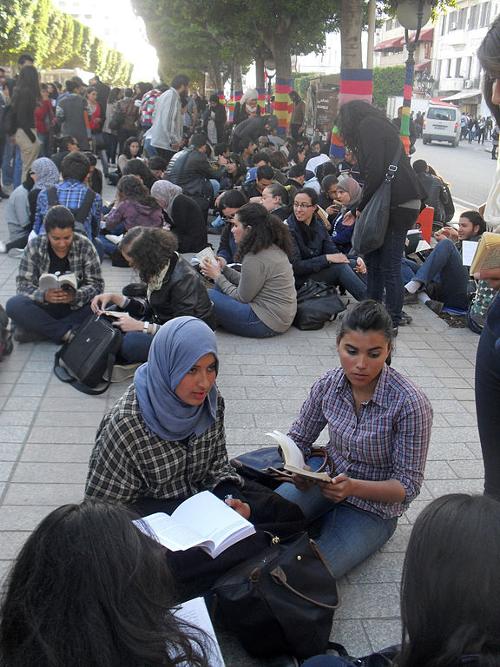TUNISIA
Population

Population
Population
The population of Tunisia was 12.2 million in 2024. The population density is very variable. The population density is greatest around Tunis and the slightly more southerly Sousse. In the south, on the other hand, very few people live per km2.
 Students TunisiaPhoto: Magharebia CC 2.0 Generic no changes made
Students TunisiaPhoto: Magharebia CC 2.0 Generic no changes made
In the coastal areas, the descendants of the Phoenicians, Romans, Normans, Andalusians and Turks live, who have completely mixed with the Arabs and Berbers. The Berbers, about 1% of the population, live in a few small communities in the mountains and on the island of Djerba. Until 1956, the year of independence, nomads or Bedouins lived in the south who lived from livestock farming. In the 1980s there were only about 1,000 left. The rest are now farmers or work in the tourist industry. Jews have always lived in large numbers in Tunisia. Few of them are left, about 2000, and most of them live on the island of Djerba. Also, of the many tens of thousands of Europeans who lived in Tunisia until 1956, very few remain. 70% of the population lives in the cities (2024). The young Tunisians in particular are moving to the cities in large numbers, causing the countryside to age seriously. Major cities in Tunisia are Tunis (2.5 million inhabitants), Kairouan and Sousse.
The average life expectancy is 77.3 years, men 75.7 and women 79.1 years. (2024)
Sources
Dominicus, J. / Tunesië
Gottmer
Ruland-Wachters, T. / Reishandboek Tunesië
Elmar
Tunesië
Standaard
CIA - World Factbook
BBC - Country Profiles
Copyright: Team The World of Info